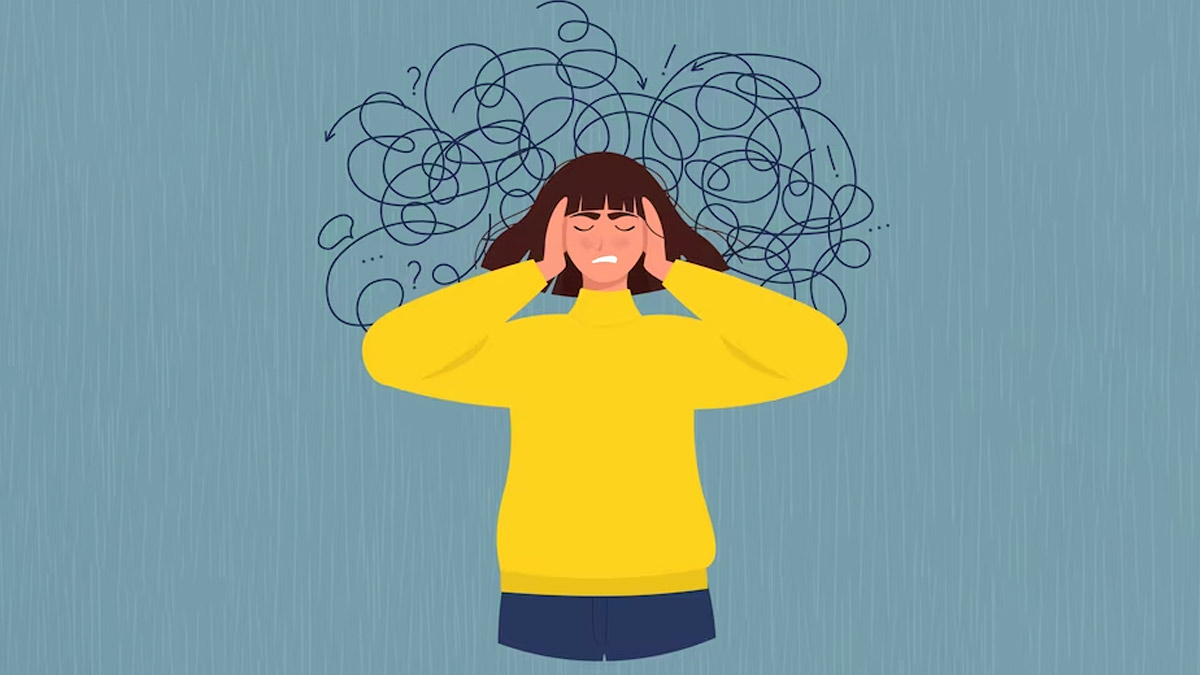
Are you sad? Are you depressed? We tend to use these terms casually, without understanding what they really mean. Sadness and depression are often viewed as synonymous, but are they really the same things? We spoke to Dr Neeraj Raj B, Consultant, Psychiatry and Counselling Services, Aster RV Hospital, Bengaluru, to help us understand and differentiate the two.
Table of Content:-
Also Read: #MentalHealthMatters: Why Do I Have Negative Thoughts In My Mind?
What Is Sadness?

“Sadness is an emotion frequently associated with feelings of unhappiness, sorrow, or grief,” said Dr Neeraj, adding, “It is often triggered by various experiences or situations and involves a sense of melancholy, low mood, and a longing for something that is perceived to be missing or lost.”
Most common causes of sadness include loss of a loved one, a breakup, disappointment, failure, loneliness, or difficult life circumstances. Sometimes, it can also be a response to witnessing or empathising with someone else's suffering, said the doctor.
Physiologically, sadness can lead to heaviness in the chest, tears, slumped posture, decreased energy, or a lack of interest in usual activities. It's important to recognise that sadness is a normal, even necessary, emotion that allows us to process difficult experiences. However, if feelings of sadness persist for an extended period or significantly interfere with daily functioning, it may be indicative of depression or another mental health concern. In such cases, seeking support from friends, family, or mental health professionals is beneficial.
What Is Depression?

As opposed to temporary feelings of sadness, depression is a mental health disorder that involves persistent feelings of sadness, hopelessness, and a lack of interest or pleasure in activities, said Dr Neeraj, further explaining that the condition can significantly impact a person's thoughts, emotions, behaviours, and overall well-being.
According to the expert, depression can cause a loss of interest or pleasure in hobbies and activities once enjoyed. It can lead to decreased energy, or one may have difficulty concentrating and making decisions, or even remembering things, he added.
The World Health Organization (WHO) reports that an estimated 3.8% of the population experience depression, which includes 5% of adults and 5.7% of adults older than 60 years. More women are affected by depression than men, states the global health organisation.
In India alone, nearly 15% of adults suffer from at least one or more mental health problems, whereas one in 20 Indians suffer from depression, according to a 2015-2016 data provided by the National Mental Health Survey.
Also Read: #MentalHealthMatters: How Mental Health Illnesses Shape Your Personality
The Difference Between Sadness Vs Depression

Sadness and depression can be related but have distinct experiences. Here are some differences between the two:
Intensity and duration
Dr Neeraj said, “Sadness is usually a temporary emotional state that arises in response to a specific event or situation, such as a loss or disappointment. It tends to lessen over time as you learn to process your feelings. In contrast, depression is a mental health disorder. It is characterised by persistent and long-lasting feelings of sadness, hopelessness, and a lack of interest or pleasure in activities.”
Cause and triggers
Sadness often results from a specific event. Depression, on the other hand, can be caused by a combination of factors, including genetic predisposition, biochemical imbalances, environmental stressors, traumatic experiences, or a history of mental health issues. There is no one definite cause to it. The WHO states, “Depression results from a complex interaction of social, psychological, and biological factors." It is an outcome of adverse life events, such as unemployment, bereavement, and traumatic events.”
Impact on functioning
According to the doctor, while sadness may temporarily affect a person's mood, it generally does not impact their ability to carry out daily activities. However, depression often interferes with various aspects of a person's life, including work and relationships.
Severity of symptoms
While sadness may be distressing, people experiencing it can still experience moments of joy, Dr Neeraj said. In depression, the symptoms are more severe, often including feelings of hopelessness, worthlessness, or guilt. People with depression may have a continuous negative outlook on life, he added. According to the WHO, depression can lead to suicide and contributes to over 8 lakh deaths every year, becoming the the second leading cause of death in 15-29-year-olds.
It's important to remember that if feelings of sadness persist for a long time, seeking professional help is recommended.
[Disclaimer: The information in this article is provided by a registered medical practitioner. However, we recommend you consult your healthcare provider for accurate diagnosis and treatment.]
Also watch this video
How we keep this article up to date:
We work with experts and keep a close eye on the latest in health and wellness. Whenever there is a new research or helpful information, we update our articles with accurate and useful advice.
Current Version
